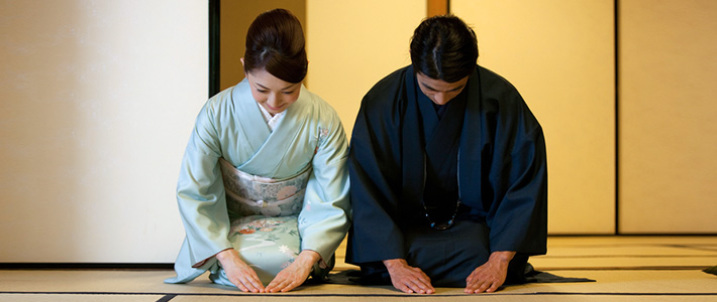The Beauty of お持て成し(Omotenashi)
お持て成しand #BTR
It's not a word we in the West are overly familiar with, but it came to prominence when emphasised by Christel Takigawa at the 2020 Olympic Games invitation presentation when she said: “The world’s most beautiful hospitality of Japan, O-Mo-Te-Na-Shi.”
The Japanese are famously polite; perhaps the most polite nation on earth and omotenashi is at the heart of their hospitality and customer service. But what does it actually mean, how has it come to be?
Being as succinct as possible, I shall borrow an extract from Abdulelah Al-alsheikh's excellent piece on 'The Origin of Japanese Excellent Customer Service'
'Omotenashi contains of three main elements, shitsurai, furumai, and shikake. Shitsurai means the physical environment where the service will be delivered. Furumai means the preparation part of the serving, and the host willingness to take responsibility by seeing the needs of the guest. Shikake means the process of the guest been participating and enjoying the process of the delivered service. These elements were inspired by the structure of the Tea ceremony. Omotenashi has a close meaning to “hospitality”. Omotenashi is a Japanese culture that was created long time ago. According to omotenashi one has to put his/her heart into delivering the most excellent service and create the unique hospitality. Ichigo Ichie is a Japanese word that means the soul of omotenashi. Saying “Ichigo Ichie” means “I am grateful for the chance of meeting you, and because of this chance I have to do my best for we may never meet again”.'
Excellent customer service is something we Brit's have a lot to learn about and it's something the BTR sector takes very seriously. But it's one thing to train individuals to provide great service, it's quite another for them to believe in it. Oh I don't mean that they don't see the value, or how it increases the reputation of the company. But heart and soul?
A key element from the extract above is 'putting one's heart into the most excellent service' “Ichigo Ichie”. And it's crucial because it's the difference between a construct, where one 'goes through the motions' (however effectively and proficiently) and the genuine desire to provide the very best possible customer experience.
Culturally, we Brits are very different from the Japanese and it's a double-edged sword; we love to moan about poor customer service, but there's also that tiny element of resistance when it comes to providing service. Almost as though it's demeaning. No self-respecting Brit would allow him/herself to feel inferior. Quite the reverse! Neither do the Japanese; whilst omotenashi" involves the subjugation of self in service to a guest, it does so without being “servile” It's subtle, but it's been refined over hundreds of years and stems from 'chakai' the Japanese tea ceremony.
Omotenashi is a sincere and selfless desire to provide the very best experience (Ichigo Ichie) but without any expectation of receiving anything in return. It is this that distinguishes omotenashi from 'service'. That may sound odd to us in the West where we feel our efforts deserve pecuniary recognition. But think about this; some multi-family operators already work in this way. In the US, Cortland has an excellent reputation for customer service. But they pointedly don't make money from their customer service because they do whatever it takes to provide the best possible customer experience. In doing that their leasing up business is highly successful and profitable.
If BTR is to make a difference to the PRS in this country then it needs to draw upon not just commercial examples of great customer service, but also cultural examples from around the world. Each of us knows instinctively when we receive great service. We know it because we can feel the integrity and sincerity behind the actions. You can't fake great service.
But this may come at a cost. As a lazy rule of thumb, it is assumed that managing a BTR scheme will take roughly a 25% bite out of gross income. There's also the expectation that this will fall once BTR operators become more familiar with their product and technology is introduced to smooth out the wrinkles and stream-line the processes. But what if the key BTR differentiator, customer service, isn't cheap and can't be sustained by 'value engineering' the process?
There's no doubt that, in the Western sphere, great service comes at a cost. But in Japan, it's a cultural imperative with omotenashi being the beginning and end of what's expected. Not the goal. If BTR is to make a difference, the philosophy and principles behind omotenashi should be the starting point from which we build our reputation.
ありがとうございました
Thank you for reading
Richard Berridge.


